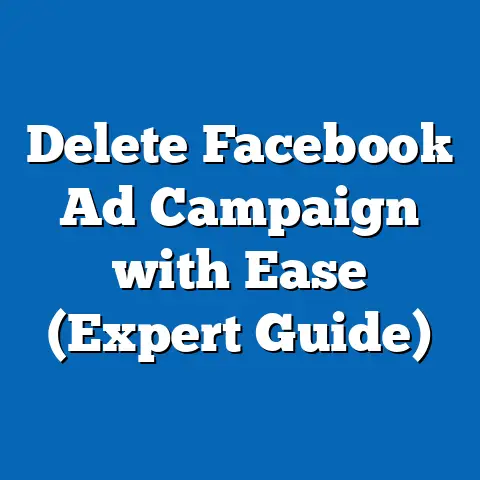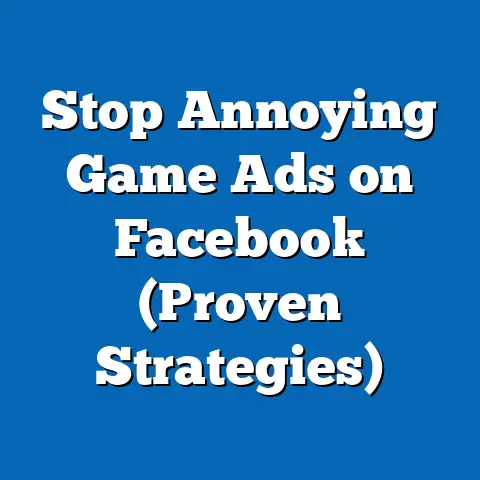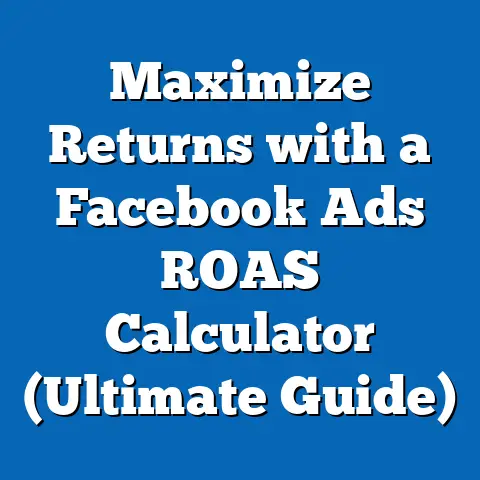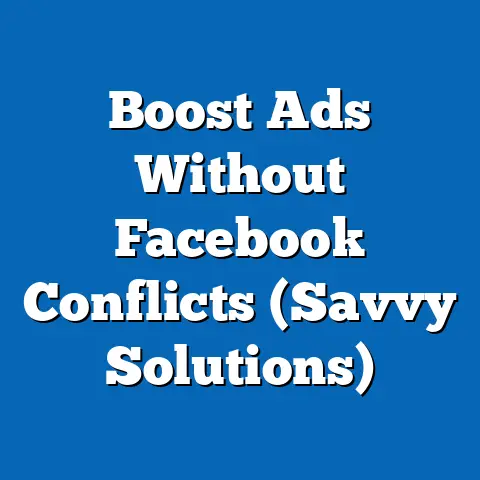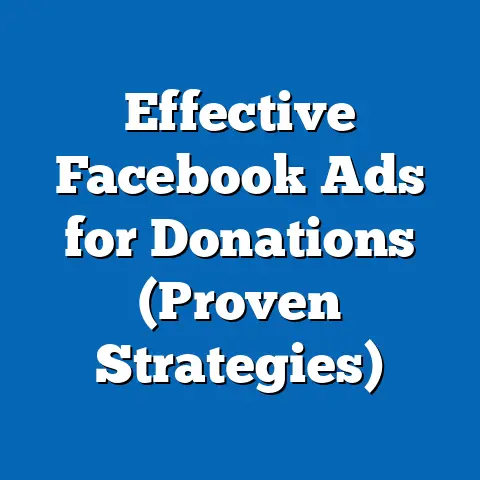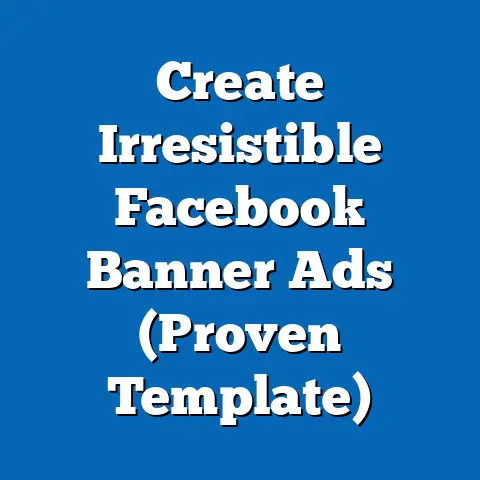Harness Facebook Messenger (Unlock Ad-Free Strategies)
Imagine walking into your favorite coffee shop.
The aroma of freshly brewed coffee fills the air, soft music plays in the background, and you see friends catching up, sharing stories, and making plans.
It’s a space for genuine connection, free from the blaring advertisements that bombard you everywhere else.
This, in essence, is what Facebook Messenger can be for your business: a place for authentic conversations, relationship-building, and customer loyalty, all without the intrusive noise of traditional ads.
I’ve seen firsthand how businesses that embrace this approach thrive in the crowded digital landscape.
Let’s dive into how you can harness the power of Facebook Messenger to unlock ad-free strategies for your business.
Understanding Facebook Messenger as a Marketing Tool
Overview of Facebook Messenger
Facebook Messenger has evolved from a simple chat application to a powerful communication platform.
With billions of active users worldwide, it’s not just a place for personal conversations; it’s a goldmine for businesses looking to connect with their audience on a more personal level.
Messenger’s integration with the Facebook ecosystem means that businesses can easily reach their existing Facebook followers and potential customers alike.
I’ve noticed many businesses still overlook Messenger’s potential, sticking to traditional ads.
But the truth is, Messenger offers a unique opportunity to bypass the ad clutter and engage directly with your target audience.
The Shift from Ads to Conversations
In today’s digital age, consumers are increasingly skeptical of traditional advertising.
They’re tired of being bombarded with generic messages and intrusive ads.
Instead, they crave authentic interactions and personalized experiences.
According to recent studies, a significant percentage of consumers prefer to communicate with businesses via messaging apps like Facebook Messenger for customer service and support.
I’ve personally experienced this shift.
As a consumer, I’m far more likely to reach out to a business through Messenger for a quick question than to click on a display ad.
This trend highlights the growing importance of conversational marketing, where businesses engage with customers in real-time, providing value and building relationships through personalized conversations.
Takeaway: Facebook Messenger offers a unique opportunity to connect with your audience on a personal level, bypassing the ad clutter and fostering authentic conversations.
Building a Messenger Marketing Strategy
Setting Up Messenger for Business
Before you can start engaging with your audience on Messenger, you need to set up your account properly.
This involves linking your Messenger account to your Facebook page and optimizing your profile for business use.
Ensure your profile picture is professional and recognizable, and that your “About” section clearly explains what your business does and how you can help your customers.
Setting up automated greetings and frequently asked questions (FAQs) can also help provide instant support and guidance to new visitors.
I remember setting up a Messenger account for a local bakery.
We included mouthwatering pictures of their pastries in the profile and immediately saw an increase in inquiries about custom orders.
Creating a Conversational Experience
One of the most important aspects of Messenger marketing is creating a conversational experience that feels natural and authentic.
This means paying attention to your tone and voice and crafting messages that resonate with your audience.
Avoid using overly formal language or sounding like a robot.
Instead, aim for a friendly, empathetic, and helpful tone.
Personalize your messages whenever possible, addressing customers by name and tailoring your responses to their specific needs and interests.
I always recommend crafting different message templates based on customer segments, ensuring each conversation feels personal and relevant.
Utilizing Chatbots
Chatbots can be a game-changer for businesses looking to scale their Messenger marketing efforts.
These AI-powered assistants can automate responses to common questions, collect data, and nurture leads, all while maintaining a personal touch.
You can program your chatbot to provide instant support, offer product recommendations, and even guide customers through the purchasing process.
I’ve seen businesses use chatbots to great effect, such as a clothing retailer that uses a chatbot to help customers find the perfect outfit based on their style preferences and body type.
The key is to design your chatbot to be helpful, informative, and engaging, rather than just a generic response machine.
Takeaway: Setting up your Messenger account properly, creating a conversational experience, and utilizing chatbots are essential steps in building a successful Messenger marketing strategy.
Engaging Customers through Messenger
Content Strategies for Messenger
Messenger is not just for answering customer service inquiries.
It can also be a powerful platform for sharing engaging content and building relationships with your audience.
Consider using Messenger to share exclusive offers, run contests and giveaways, and provide behind-the-scenes glimpses into your business.
Polls and quizzes can also be a great way to spark conversations and gather feedback from your audience.
Don’t forget to leverage rich media like images, videos, and GIFs to make your messages more visually appealing and engaging.
I once helped a travel agency create a series of interactive travel quizzes on Messenger.
The quizzes were a huge hit, generating tons of leads and driving traffic to their website.
Building a Subscriber List
Building a Messenger subscriber list is crucial for reaching a wider audience and nurturing leads.
You can grow your subscriber list by promoting your Messenger account on your website, social media channels, and email newsletters.
Consider offering an incentive for people to subscribe, such as a discount code or free e-book.
You can also use Facebook ads to drive traffic to your Messenger account, targeting specific demographics and interests.
I’ve found that the key to building a large subscriber list is to provide valuable content and make it easy for people to opt-in.
For example, you can add a “Send to Messenger” button to your website or create a landing page specifically for Messenger subscribers.
Takeaway: Engaging customers through Messenger involves sharing valuable content, running contests, and building a subscriber list to reach a wider audience.
Driving Conversions without Ads
Nurturing Leads through Conversational Marketing
One of the biggest advantages of Messenger marketing is its ability to nurture leads and drive conversions without relying on traditional ads.
By engaging with potential customers in real-time, you can answer their questions, address their concerns, and guide them through the buyer journey.
Consider using Messenger to provide personalized product recommendations, offer exclusive discounts, and even schedule appointments.
I’ve seen businesses use Messenger to close deals that would have otherwise fallen through, simply by providing personalized support and addressing customer objections in a timely manner.
The key is to be proactive, responsive, and always focused on providing value to your customers.
Follow-Up and Customer Retention
The conversation doesn’t end after the initial sale.
Follow-up messages are crucial for building long-term relationships with customers and driving repeat business.
Use Messenger to thank customers for their purchases, ask for feedback, and offer ongoing support.
You can also use Messenger to re-engage inactive subscribers by sending them exclusive offers or reminding them of your latest products and services.
I once helped a subscription box company create a series of automated follow-up messages on Messenger.
These messages not only improved customer retention but also generated valuable feedback that helped them improve their products and services.
Takeaway: Nurturing leads through conversational marketing and following up with customers are essential for driving conversions and building long-term relationships on Messenger.
Measuring Success in Messenger Marketing
Key Metrics to Track
To determine the effectiveness of your Messenger marketing campaigns, it’s essential to track key metrics like open rates, click-through rates, and customer feedback.
Open rates measure the percentage of people who open your messages, while click-through rates measure the percentage of people who click on links within your messages.
Customer feedback can provide valuable insights into how your audience perceives your Messenger experience.
You can track these metrics using Facebook’s built-in analytics tools or third-party Messenger marketing platforms.
I always recommend setting up a dashboard to monitor these metrics in real-time, allowing you to quickly identify areas for improvement.
Adapting Based on Feedback
The beauty of Messenger marketing is that it allows you to constantly adapt and improve your strategies based on customer feedback.
Pay close attention to what your audience is saying and adjust your messaging accordingly.
If you’re getting negative feedback about a particular message or chatbot interaction, don’t be afraid to make changes.
I’ve seen businesses successfully adapt their Messenger approaches based on user input, resulting in higher engagement rates and improved customer satisfaction.
The key is to be flexible, responsive, and always willing to learn from your mistakes.
Takeaway: Tracking key metrics and adapting based on feedback are essential for measuring success and optimizing your Messenger marketing strategies.
Conclusion: The Future of Messenger Marketing
As the digital landscape continues to evolve, the future of marketing lies in building authentic connections and fostering meaningful conversations with your audience.
Facebook Messenger offers a unique opportunity to do just that, bypassing the ad clutter and engaging with customers on a personal level.
By embracing ad-free strategies like conversational marketing, personalized messaging, and chatbot automation, businesses can unlock new levels of engagement, drive conversions, and build long-term relationships with their customers.
Just like a conversation in a cozy coffee shop, harnessing Messenger can lead to meaningful connections that drive brand loyalty and growth.
I believe that businesses that prioritize these strategies will be the ones that thrive in the years to come.
So, take the leap, embrace the power of Messenger, and start building those meaningful connections today!

